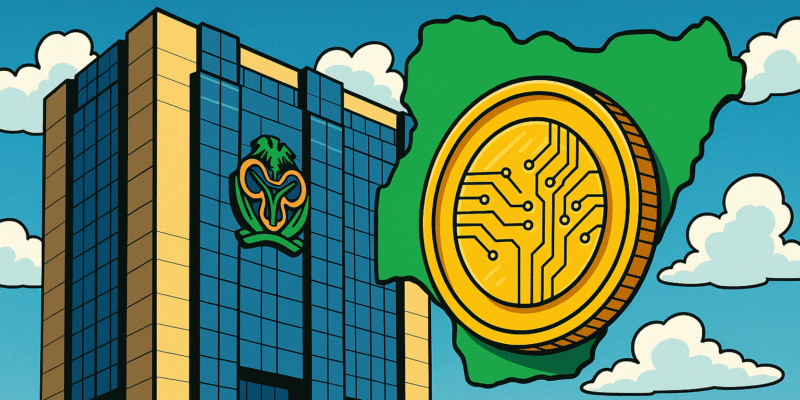Nigeria eyes stablecoin integration as the country’s central bank and financial regulators begin shaping a framework that could redefine the nation’s digital finance landscape. The Central Bank of Nigeria (CBN), in collaboration with the Ministry of Finance and other institutions, has formed a working group to explore how stablecoins can operate within the country’s payments and monetary systems.
This development marks a significant moment in Nigeria’s evolving relationship with digital assets. Once known for its restrictive stance toward cryptocurrencies, the CBN now appears to be recalibrating its approach, seeking ways to harness stablecoins without compromising monetary stability. Officials have hinted that the goal is to create a structure where digital assets complement, rather than compete with, the naira.
Analysts say the move is timely. Nigeria remains one of the world’s most active crypto markets, with transactions valued at over $59 billion between July 2023 and June 2024. Stablecoins account for nearly 40 percent of that volume, offering users a digital hedge against currency volatility and limited dollar access. By integrating stablecoins under formal regulation, the CBN could enhance transparency, improve remittance flows, and position the country as a continental leader in digital finance innovation.
The CBN’s interest also aligns with global trends. Governments from the European Union to Singapore are experimenting with regulated stablecoins, recognizing their potential to streamline payments while reducing costs. For Nigeria, the challenge lies in balancing innovation with control. Regulators remain wary of dollar-pegged tokens eroding monetary sovereignty or fueling unmonitored capital flows in the foreign exchange market.
Financial experts suggest that Nigeria’s next steps will likely include clear licensing requirements for stablecoin issuers, defined custody rules, and reporting standards for fintech companies. If implemented effectively, these measures could build investor confidence and attract global players looking to expand into Africa’s most populous market.
While policy details remain under review, the direction is clear: Nigeria is moving toward digital asset inclusion, not exclusion. The CBN’s openness to stablecoin integration signals a more mature, forward-thinking phase in its financial modernization journey, one that blends innovation with oversight and reflects the realities of a digital global economy.

Comments